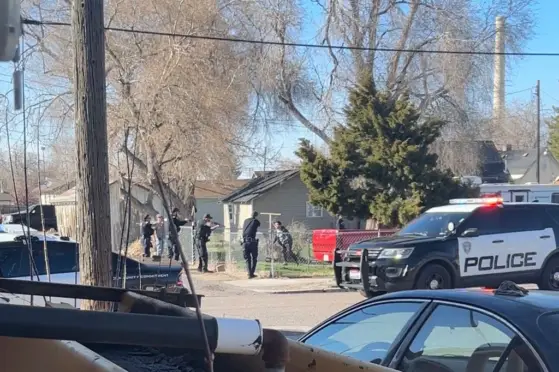California Becomes Latest State to Timidly Embrace Hemp Legalization
With all of the attention focused on the legalization of cannabis’ psychoactive variety we call marijuana, it’s no surprise much of the public is unaware of the developments regarding cannabis’ non-drug variety we call industrial hemp. The more you dig in to the issue of hemp, the more you’ll find it is far wackier than the wacky tobaccy.
California Gov. Jerry Brown just signed Senate Bill 566 which legalized industrial hemp… sort of. The law requires the state to regulate the farming, processing, and sales of hemp for oilseed and fiber, just as soon as the federal government says it’s okay to do so. It’s like California’s at the hemp race starting line with an “on your marks… get set…” and it’s just waiting for the feds to say “go!”
The state’s voters weren’t as timid in 1996 when they legalized marijuana for medicinal purposes through ballot initiative, but the legislature wasn’t shy about passing Senate Bill 420 in 2003, either, with then-Gov. Gray Davis signing it, despite its conflicts with federal drug laws.
In polling, the state’s voters were supporting the historic Prop 19 marijuana legalization in 2010, until the legislature passed and then-Gov. Arnold Schwarzenegger signed a marijuana decriminalization measure to lessen the urgency for outright legalization. The Governator didn’t seem to mind that he was lowering penalties for a federally-criminal drug.
But the hemp issue in California seems not to have caught the imagination of ballot initiative activists or the general public. The legislature has hammered away at the issue, passing bills in 2002, 2006, 2007, 2008, and 2011, which were subsequently vetoed by the aforementioned Govs. Davis, Schwarzenegger, and Brown. How is it they could sign laws increasing access and lessening penalties for drug-cannabis and veto laws legalizing non-drug cannabis?
In vetoing the 2011 hemp measure, Gov. Brown wrote “Federal law clearly establishes that all cannabis plants, including industrial hemp, are marijuana, which is a federally regulated controlled substance. Failure to obtain a permit from the U.S. Drug Enforcement Administration prior to growing such plants will subject a California farmer to federal prosecution.” Yet there are plenty of California medical marijuana farmers who have been federally prosecuted, even as they followed the 2008 medical marijuana guidelines that Jerry Brown himself wrote up as Attorney General.
Thus we have Gov. Brown signing the 2013 iteration of the hemp bill that keeps hemp’s legality in limbo until the federal government gives the go-ahead… and maybe it already has.
On August 29, the Department of Justice released its long-awaited response to the legalization of drug-cannabis in Washington and Colorado. The feds explained they will likely allow state marijuana legalization to move forward with “the expectation that states … will implement strong and effective regulatory and enforcement systems that will address the threat those state laws could pose to public safety, public health, and other law enforcement interests.” So long as the states are preventing distribution to minors, criminal profits, diversion to other states, drug trafficking, violence and firearms use, stoned driving, growing on public lands, and marijuana possession on federal property, Washington and Colorado will be left alone. If the White House is going to allow Washington and Colorado to grow, buy, sell, and use drug-cannabis, how could this not apply to California’s regulation of non-drug-cannabis?
California is not the only state to pass an “It’s OK if the Feds Say So” hemp legalization law. Nine other states (Colorado, Kentucky, Maine, Montana, North Dakota, Oregon, Vermont, Washington, and West Virginia) have also passed such laws, but a few of those states are tired of waiting for the feds to say “go!” Maine and West Virginia lawmakers enrolled bills to remove their laws’ requirements for federal licensure. Colorado addressed the problem when it passed Amendment 64 legalizing marijuana, which also directed the legislature to regulate hemp and just this week, the first legal hemp crop in sixty years was harvested by hand in Southeast Colorado.
There are thirty countries in the world that allow legal cultivation of industrial hemp, yet they still ban the production of marijuana to one degree or another. The United States stands alone among industrialized nations in banning both drug-cannabis and non-drug cannabis, but still allows the importation of harvested hemp and hemp seeds for making soaps, nutritional products, building materials, clothing, and more. Canada and China are more than willing to keep supplying our industries with hemp and taking all the jobs and profits that come from that trade imbalance.
With the issuance of the August 29 Cole Memo, legalization in two states, and medical marijuana in twenty states, you’d think the legalization of industrial hemp would be a no-brainer. How does Drug Enforcement Administration get away with administering the enforcement of laws against non-drugs? Our lawmakers still don’t seem to get that you can’t hide marijuana plants in hemp fields (cross-pollination ruins them both) and you can never smoke enough hemp to get anything other than a headache (even extraction and concentration techniques would require so much hemp as to be unfeasible).
While states meekly pass laws designed not to offend the governors who fear the federal government, we continue to miss out on producing nature’s most digestible protein for humans, strongest fiber for clothing, most renewable source of fuel for vehicles, and a carbon negative source of cheap, recyclable building material. America’s struggling farmers are ready to start growing hemp now and it is unconscionable – and in my opinion, unconstitutional – to prevent them from doing so.
I’ve never read of a constitutional challenge to the federal ban on hemp and I’m no lawyer, so perhaps my theorizing here is way off base. I just don’t understand how banning hemp farming isn’t a blatant violation of the Ninth Amendment. If you recall your Bill of Rights, you’ll know this as the short little amendment that reads, “The enumeration in the Constitution, of certain rights, shall not be construed to deny or disparage others retained by the people.”
The way I understand that is just because the Founders wrote many of our rights into the Constitution, that didn’t mean it was an exhaustive list. There are still other rights “retained by the people” that aren’t mentioned. Now, certainly, in a country founded by hemp farmers who wrote on hemp paper, swore allegiance to a hemp flag, and required cultivation of hemp by law, don’t you think the people retain the right to grow hemp?
The Father of our Country, George Washington wrote, “Make the most of the Indian hemp seed, and sow it everywhere!” He didn’t add “…if the federal government says you can.”






